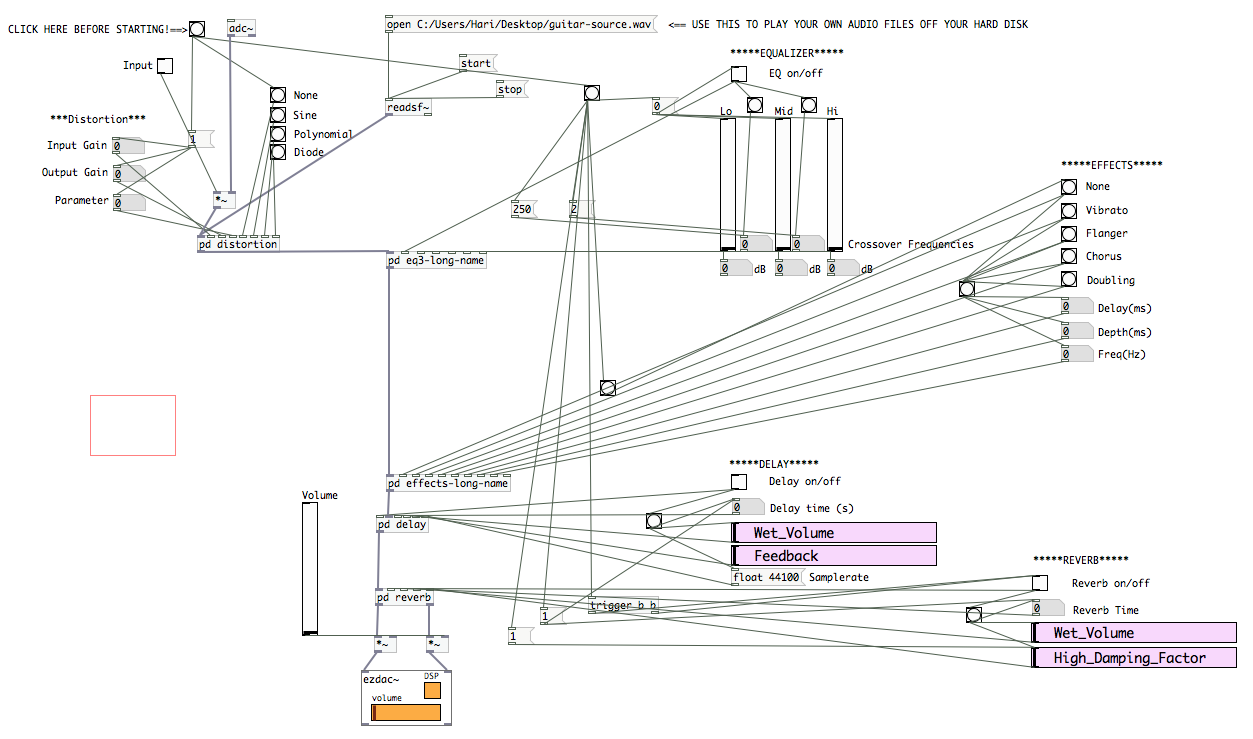

There's also a bit of a cheapness factor to it all, too. I ought to rip some of my "gems" I've found at estate sales, but I've been lazy about doing it.Īxon wrote:Yeah, it's definitely a preference thing - although I will say that I'm not all that concerned about equalization accuracy as well it's just that there has been some occasional griping on the subject of digital somehow being numerically less accurate in such regards which is generally unwarranted. They'll play as new until the player wears out, and three more after that. A good CD rip is a way of preserving the orginal LP, and LP's have a finite life.
MAX MSP EQUALIZER SOFTWARE
A good CD recording card and software also make the source material the limitation. Tape formulation/bias/head gap issues are less critical, but in the end, the source material is the limitation.

I can record at a higher average recording level. Recording "flat" to 15 IPS R-T-R then equalizing on playback does have some advantages. Now my equalizer doesn't have quite enough range to duplicate the RIAA curve, but very close. I also "half-speed master" my 78 dubs, to reduce surface noise even more. I use the "flat" setting on my 78's on the pre-amp, and equalizer downstream before running thru the DBX. My '72 vintage Grace pre-amp has 9 EQ settings for records, RIAA, NAB, BBC, DIN, and more. A great "silencer" for the inherent surface noise of 78's. I use a 16 band equalizer, and a DBX processor that "de-compresses" the audio by the amount I want on play-back. I don't rip much to CD's, but I do "archive" lot's of 78's to tape before they self-destruct, which they are want to do. The RIAA EQ on vinyl doesn't transfer that well to CD's.

I think I understand what they are attempting to do.


 0 kommentar(er)
0 kommentar(er)
